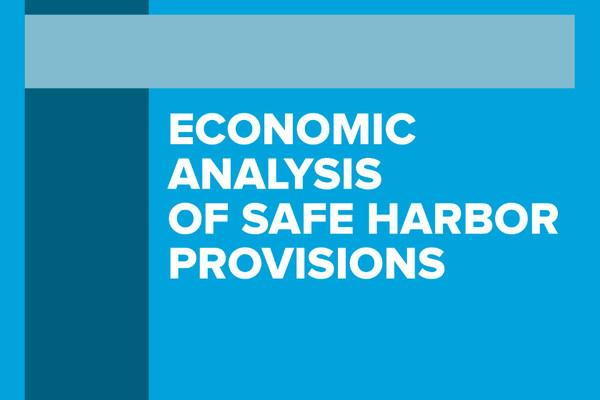Economic Analysis of Safe Harbour Provisions

Copyright “safe harbour” rules, drawn up a quarter of a century ago to help nurture early online commerce, are today distorting the digital market, profiting tech giants and leading to significant underpayment of copyright owners, a new US economic study says.
“Economic Analysis of Safe Harbour Provisions”, by Ashbel Smith Professor Stan Liebowitz of the University of Texas at Dallas, is the most detailed economic examination to date of how copyright owners have been damaged by so-called “safe harbour” rules in copyright law.
The economic study has been commissioned by CISAC, the International Confederation of Societies of Authors and Composers. CISAC is the world’s leading network of authors’ societies, with 239 member societies in 121 countries together representing over 4 million creators of music, audiovisual, drama, literature and visual art.
Professor Liebowitz is a leading author, researcher and academic in the economics of intellectual property, networks and new technologies. Among the findings of his study are the following:
- Because of the safe harbours, User Upload Content services such as YouTube have “an inefficient and unfair advantage” when they negotiate rates for permission to use copyrighted works on their sites.
- As a result, UUCs either do not pay for copyright permissions or, if they pay something, they pay less than the market rate.
- Other online services (such as subscription services, e.g. Spotify and Apple Music) are at a competitive disadvantage when competing with UUC platforms. These services generate lower revenues and have a reduced user base, because of the distorting impact of safe harbours.
- As a net result, because of the distorting knock-on effect of safe harbours on the wider market for creative content, copyright owners are seeing reduced copyright payments from both UUC and other services. These reductions would appear to be “very substantial”.
